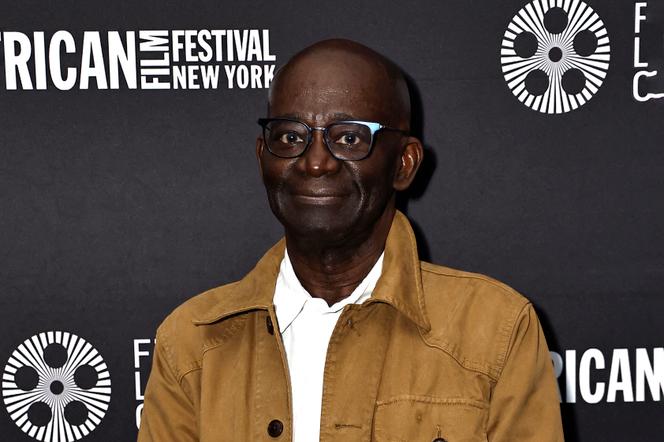


On December 1, 1944, dozens of African tirailleurs were shot dead by the French army at the Thiaroye military camp on the outskirts of Dakar, in Senegal, for demanding payment of their demobilization bonus.
This massacre, described as a mutiny by the French authorities until 2014, has re-emerged at the center of debate following the granting, in June, by President Emmanuel Macron, of the distinction "Died for France" to six tirailleurs, a measure criticized by Ousmane Sonko, the Senegalese prime minister, who felt that France could not decide unilaterally on this long-silenced memorial issue.
After coming to power in March, Sonko and the president Bassirou Diomaye Faye have shown their intention to shed light on this colonial crime and reintegrate Thiaroye into the national story. Major ceremonies to pay tribute to the tirailleurs killed 80 years ago have been planned across the country on December 1.
Mamadou Diouf, a historian at Columbia University in New York and president of the commemoration committee, has analyzed the political and memorial implications of the Thiaroye massacre.
These ceremonies are a powerful act, a way of saying that imperial history can no longer be recounted exclusively by France. In Thiaroye, on that day, men who had gone to liberate France were shot dead for demanding their pensions and allowances.
For decades, France has blockef the memory of this massacre and expropriated Africans from this history. Thiaroye is an indelible moral stain that the former colonizer has long tried to conceal, for example by banning the broadcasting of Ousmane Sembène's film [Camp de Thiaroye, shot in 1988], or by denying facts.
Today, Senegal's new political class is determined to reappropriate a new narrative and produce its own. It is also seeking a pan-African discourse capable of uniting a region troubled by conflicts in the Sahel, hence the central place given to neighboring countries in these commemorations. These tirailleurs, who were not only Senegalese, but also Malians, Burkinabe, Guineans and Ivorians, were all victims of colonial violence.
This event took place in a paradoxical sequence. It was a time of euphoria, when Europe and the US were celebrating the end of the fascist nightmare. Africans, too, believed in a new dawn, an era of freedoms and equality, as evidenced by the lively debates on democracy at the time.
But, just as after the First World War, Westerners excluded Algerians, Sub-Saharans and the Indochinese from this emancipatory upsurge, shouting in their faces: "Go back to where you belong!" The Thiaroye massacre took place in this new France, driven by the European ideal and Gaullism. [Léopold Sédar] Senghor, [Aimé] Césaire and [Frantz] Fanon captured this tension between the aspiration to freedom and the unleashed colonial violence in their writings.
For decades, France has deliberately obstructed access to its archives. Therefore, there is room for dobt. For a long time, political embargo was the norm, which explained Senghor's silence on this carnage, even though he was the first to denounce it in a poem written a few days after December 1, 1944. But once he was president, he never mentioned it again.
When he was a French MP [from 1945 to 1951], Lamine Guèye called for a parliamentary commission of inquiry. But once he was elected president of the National Assembly [of Senegal, 1960-1968], he too remained silent.
That a state should attempt to impose its narrative on the victims of colonial violence is a constant fact of history. The state produces history in order to validate its political hegemony. When Robert Paxton, an American historian, worked on the Vichy regime, he came up against the official narrative. But in spite of everything, he broke the mold. This is what could happen at Thiaroye, hence the pugnacity of the Senegalese authorities.
The challenge is to maintain our high standards. Our committee has identified a list of undelivered archives. It has also mapped the sites where they could be preserved in France. In collaboration with the French authorities, a delegation of Senegalese historians, archivists and documentalists will be visiting France in a few days' time.
Neither the Senegalese authorities nor the committee are motivated by a fight against France, but by a strong desire to shed light on the facts and produce a historical account that is as unobjectionable as possible.
These documents were indeed presented in 2018, at a pre-conference bringing together African researchers but their exploitation was not pursued for administrative and political reasons. At the time, President Macky Sall showed little interest in this diplomatically embarrassing subject. But the political will of his successor has made them available, even if access remains restricted.
Its approach is a coherent one: that of pan-African integration, based on a break with the alignment inherited from the Cold War and Françafrique. The aim of these commemorations is to offer an African commentary on the world. Thiaroye is part of this approach. It's about refocusing on the continent. In so doing, the new authorities are marking a definite break with Senegal's post-colonial history.
Translation of an original article published in French on lemonde.fr; the publisher may only be liable for the French version.
